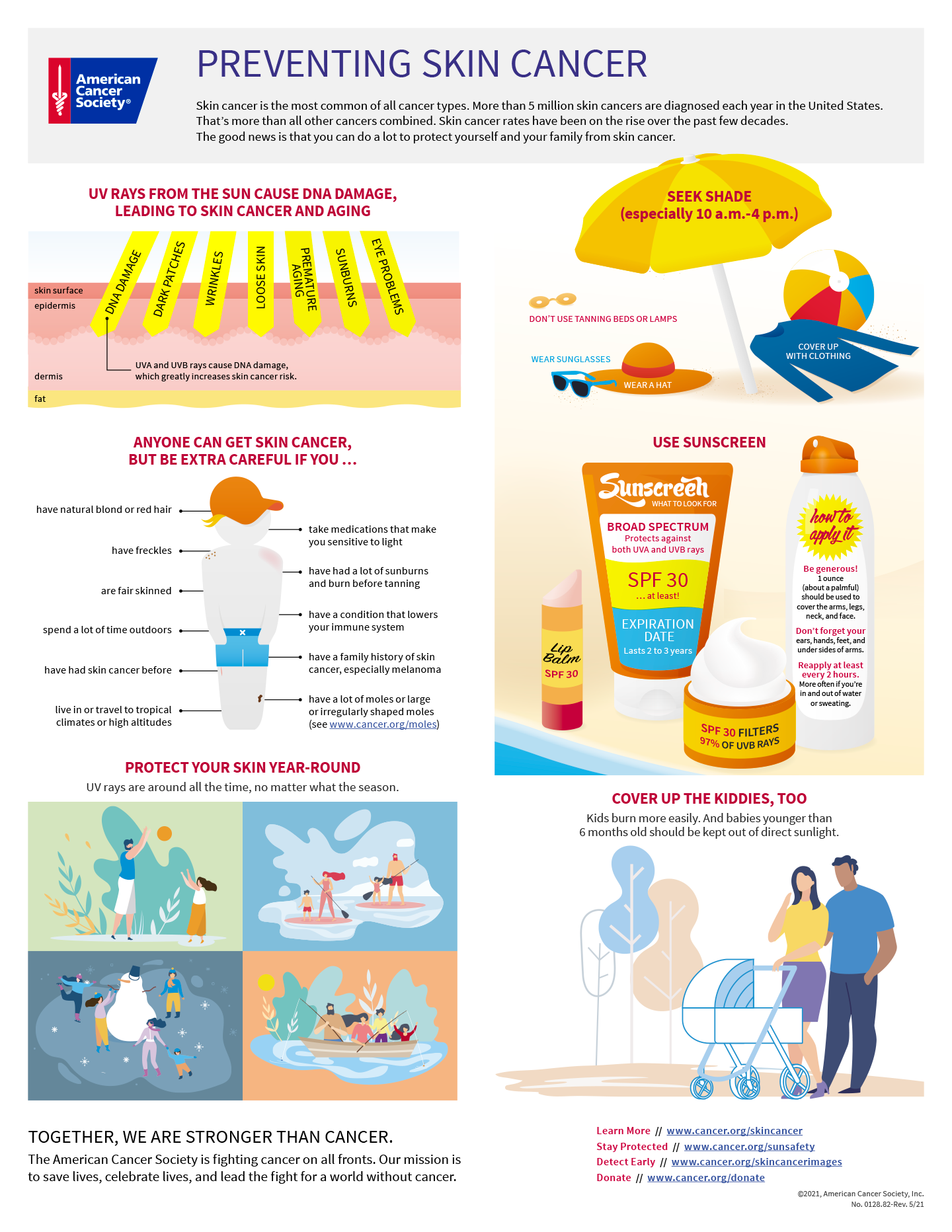Skin Safety Does Not End With Summer
September 30, 2021. By Ashley Agnew:
As you may recall our charitable initiative for 2021 was supporting and raising awareness for the American Cancer Society. We have learned so much as a team, and have been touched by the stories shared by our friends, colleagues, and clients. Recently an overlooked concern has been brought to our attention as we are more aware of cancer prevention and screening processes due to the initiative. That concern is skin protection regardless of the season. In New England, it is easy to associate SPF and skin-checks with only the few warm summer months we experience, however the threat of UV damage is also present in the sunshine of the spring, autumn, and even winter.
The American Cancer Society recommends these best practices to stay skin-safe 365 days a year, regardless of your location or season:
- Be Aware of Peak UV Times: UV rays are strongest between 10am and 4pm, regardless of whether it is a cloudy day or not. Protect yourself with SPF daily, and remember that UV rays can also reflect off of pavement, water, sand, and other surfaces. Appropriate accessories, such as rimmed hats, sunglasses, and long sleeves, can also be good UV protection tools.
- Use Sunscreen Properly: It is important to remember that sunscreen is just a filter, and it at it’s best when used appropriately and often. Pay close attention to ears, neck, lips, and other areas not covered by clothing. Late season golfing is a common place where participants forget to apply sun protection. Here is a helpful SPF FAQ: Using Sunscreen.
- Perform Regular Skin Exams: A skin exam is best done in a well lit room and should examine the entire body. Use a hand held mirror to examine hard-to-see areas including your back and scalp. ACS provides the following helpful step-by-step guide: How to do a self exam.
- Become Familiar with Common Ways Skin Cancers Appear: Keep an eye on any new, expanding, or changing growths, spots, or bumps on the skin and communicate concerns with your doctor right away. While growths, spots, and irregularly shaped moles are most common, these are not the only ways skin cancer can appear. This image gallery may help identify concerning appearances: Skin Cancer Image Gallery.
Your doctor is your ally in your cancer prevention and detection, however you are your own best advocate. Bring to attention any concerns you have immediately so your medical professional can proceed with the greatest care. We are thankful to organizations like the American Cancer Society for raising awareness for skin safety and hope you find this as a good reminder to protect yourself and your family year-round.

